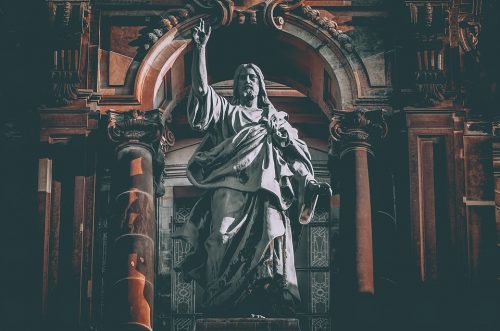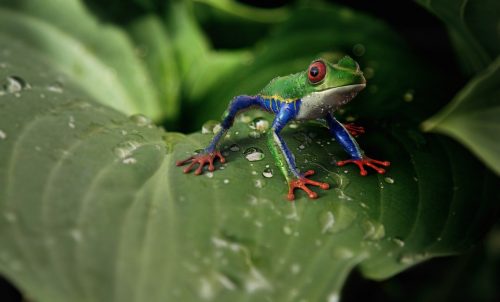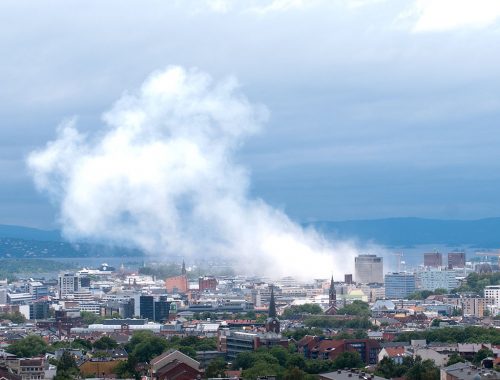We hear a lot these days about political correctness, a term that was popularised by a 1990 article in the New York Times by Richard Berstein. It was initially a term coined by the far-left but has, in more recent times, been adopted by the conservative right to speak against “policies, behaviour, and speech codes that the speaker or the writer regarded as being the imposition of a liberal orthodoxy.” [1] These people on the far-right use the words politically correct (or PC, or the PC Brigade) as a form of insult. They dislike words such as tolerance and love, even though they’re Bible words, and they’re always at war with culture.
Now, of course, we can take any good thing too far, and I’m not suggesting that we become a ‘Nanny State’ where every word has to be policed, but it’s helpful to remind ourselves what it really means to be politically correct and what the Christian response should be to political correctness. The dictionary defines it as follows, “the avoidance of forms of expression or action that are perceived to exclude, marginalize, or insult groups of people who are socially disadvantaged or discriminated against.” [2] It sounds to me like that’s an excellent definition of what it means to live out the Christian faith!
If you’re a Christian (or even if you’re not), do you want your words and actions to exclude, marginalise or insult people who are already on the edges of society? Would you want to increase the pain they already experience because of social disadvantage? Does your faith lead you to discriminate against others? If it does, it’s probably time to re-examine your beliefs.
The above definition of political correctness leads me to think about the life of Jesus. At the start of His ministry, Jesus quoted the prophet Isaiah to define and communicate the nature of His ministry amongst people. Remember, Jesus is God in human form, so when we look at Jesus, His life, His words and His actions, we see what God is really like.
Jesus read, “The Spirit of the Lord is on me, because he has anointed me to proclaim good news to the poor. He has sent me to proclaim freedom for the prisoners and recovery of sight for the blind, to set the oppressed free, to proclaim the year of the Lord’s favour.” [3] To the first century Hebrew mind “the poor” were those who existed on the margins of society and thus excluded from the social and religious communities because of either gender, age, poverty, disability, or impurity. Sounds familiar, doesn’t it? Jesus avoided forms of expression or action that excluded, marginalised or insulted people who were already socially disadvantaged or discriminated against. Jesus was politically correct! In fact, the only people He regularly offended were the people who weren’t excluded – those who held and abused religious or political power.
For Jesus, the words from Isaiah weren’t just a Bible quote, they were “truth to be lived” – something He embodied as He walked amongst people. Over and over, as you read about the life of Jesus in the Gospels, you see a man who was full of kindness for the excluded.
That’s how Jesus started His ministry, and He practiced what He preached until He was crucified. He then commissioned His Church, His followers, Christians, you and me to follow His example by feeding the hungry and thirsty, offering hospitality to the stranger or foreigner, clothing the naked, looking after the sick and visiting prisoners. These are the things we will give an account of to Him in the future. [4]
Frequently the church is seen as protecting its own self-interests rather than looking out for the interests of others. That’s why we hear some Christian people complain about political correctness as if it’s an enemy. I think it’s tragic that we have to be reminded to be kind and inclusive towards people who are often socially disadvantaged or discriminated against. But as Jesus said, “it is true that the children of this world are shrewder in dealing with the world around them than are the children of the light.” [5] It’s a sad indictment on some of the church that this statement is still valid.
Paul, the apostle, summarised the entire Bible in one statement, “love does no harm to a neighbour. Therefore, love is the fulfillment of the law.” [6] Now that sounds like political correctness to me!
[1] https://en.wikipedia.org/wiki/Political_correctness#1980s_and_1990s
[3] Luke 4:18-19 (Cf. Isaiah 61:1-2a)
[4] The Parable of the sheep and the goats (Matthew 25:31-46)
[5] Luke 16:8
[6] Romans 13:10









